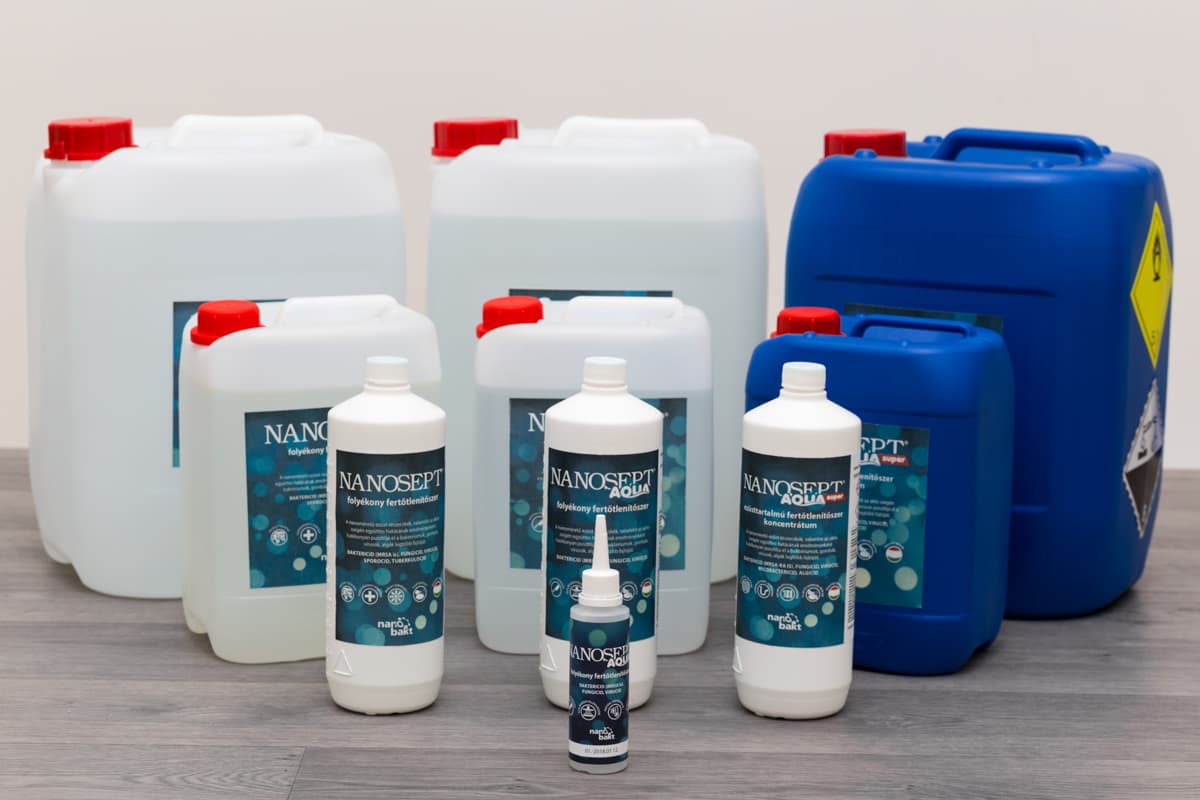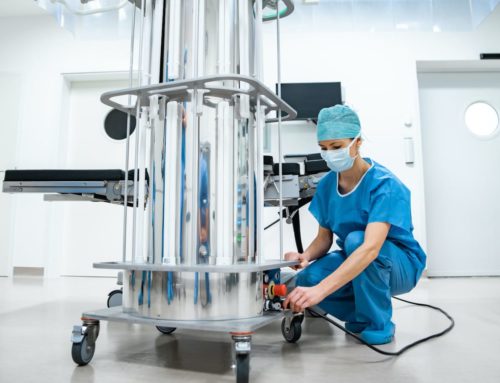A domestically developed, long-acting silver-containing surface disinfectant can rush to help industry and healthcare prevent the spread of corona virus infection.
All experts agree that disinfection has a key role to play in the fight against COVID-19. Hand disinfection and personal precautions are extremely important, but the durable protection of surfaces is just as essential.
Whether it is healthcare institute interiors, waiting rooms, or simply objects often touched by the community (such as vehicle handrails, public works of art etc.), disinfecting any surface that people inevitably get in contact with is key.
There are solutions that go beyond simple, instantaneous disinfection and have a lasting effect. These are innovative materials that can also fight aggressive viruses such as COVID-19 with extreme efficiency due to the use of small metal particles.
What is the point of adding metal to a disinfectant?
When microscopic metal particles arrive at the surface, they do not volatilize like alcohol or chlorine, but remain on the surface, so their effect, compared to conventional disinfectants, lasts for a long time. Several metals can be used for this purpose, including titanium or silver. Exactly which metal is worth using and what can have a physiological effect, is constantly being studied by researchers on both the international and domestic stage. A recent study in the International Journal of Molecular Sciences, for example, examines several applications that can be used to protect the health of healthcare workers in the event of an epidemic by examining products containing silver particles.
Hungarian innovation with outstanding research background
In 2008 a project was launched in Hungary that involved renowned Hungarian research institutes and universities with the support of a tender, in the framework of which renowned chemists and biologists studied the use of silver particles in healthcare. As a result of this research the concept of Nanosept disinfectant was born as a by-product combining the antimicrobial (microba-inactivating) effect of hydrogen peroxide and silver particles with an innovative manufacturing process, also exploiting the ability of silver particles to adhere to the surface.
Nanobakt Ltd. was soon founded for the purpose of launching the project in the Hungarian market and it started the production of the product. The advantages of using Nanosept were quickly recognized by some parties of the industry. Thus spas, water-based cosmetics companies and mineral water manufacturers among others began to use the disinfectant regularly. Although the outstanding efficiency of the product has been proven by laboratory tests in many areas, the widespread use of the disinfectant has not started until now (April 2020) as it has not been able to compete in price with the conventional mass-produced cleaning agents due to its extra-quality raw materials. In recent times, however, at the time of the epidemic, a great change has taken place. Nanosept is domestically manufactured, so it was able to meet the increased demands immediately. Currently, the price is secondary to efficiency, consequently the use of Nanosept has increased dramatically as it is the best possible long-lasting complex surface disinfectant.
Why can this disinfectant be important in relation to coronavirus?
It has never been more important to disinfect surfaces as efficiently as it is now with COVID-19 virus. As it is well-known, the coronavirus spreads like a flu infection and many articles have reported that it can cause infection if a person touches their eyes, nose or mouth after touching contaminated objects. According to our current information, one of the main reasons for the rapid spread is that there is an average of 5-6 days elapse between infection and the onset of symptoms. It seems obvious then that a disinfectant that stays permanently on the surface can play a huge role in slowing down the epidemic. Nanosept can also be converted into a disinfectant mist with the right tool, which allows it to be distributed extremely efficiently even in confined spaces. And although innovations using other types of microscopic metal particles are also available, silver-containing agents are those that have been the subject of a comprehensive study by the Council of Europe’s SCENIHR Committee that has shown any adverse health effects.
Thus, we have a continuously available, chlorine-free disinfectant tested in many ways at our disposal, which can be of great help in the fight against COVID-19. We hope that the widespread use of the material can soon begin to help slow down the current epidemic.




